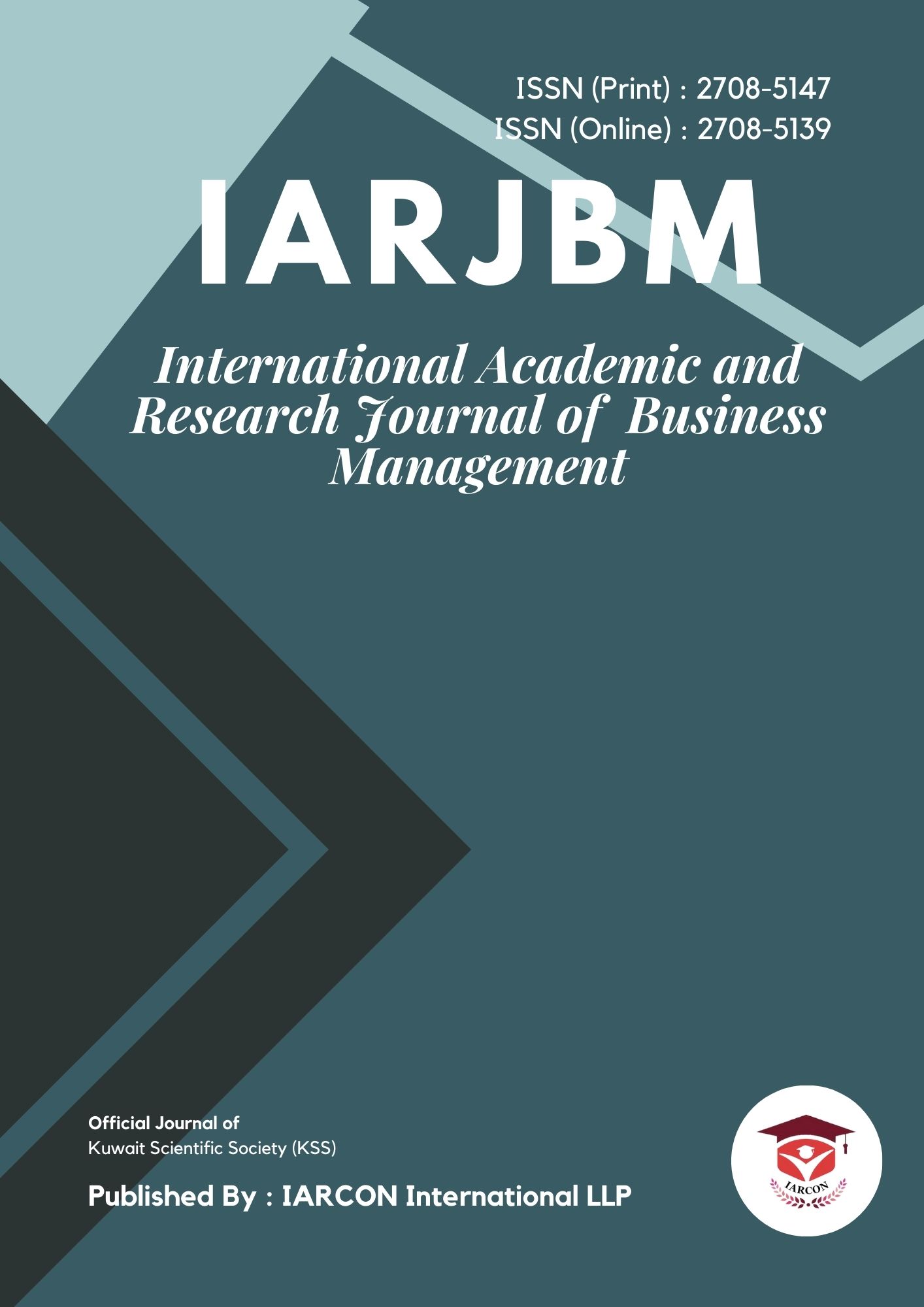Fostering Job Satisfaction: Unraveling the Influence of Flexible Working Arrangements on Bank Muscat Employees in Nizwa, Oman
Human resource is an asset of any organization. The rapid trend of changes and social issues in managing the workforce have forced organizations to look for innovative ways of enhancing the job satisfaction of employees resulting in better productivity. Among these innovative approaches include the provision of Flexible Working Arrangements (FWAs). The purpose of this exploratory research was to investigate the effects of FWAs, i.e., flexible worktime, compressed workweek, workplace flexibility and functional flexibility on job satisfaction from the perspective of Bank employees in Nizwa, Oman. Such a study is relevant as it examines how the implementation of innovative ways of enhancing job satisfaction such as provision of Flexible Work Arrangements can impact job satisfaction and can go a long way to reduce stress and enhance the employee productivity. Based on the results, the study aims to come up with recommendations on how to improve the satisfaction and employee performance levels so as to improve the efficiency of the bank. Since it is a case study, the population of the study consist of 130 Bank Muscat branch employees in Nizwa; out of which 98% responses were collected. A primary data collection method was implemented using a structured questionnaire. For achieving the objectives of the study, both descriptive and inferential analysis were conducted. Apart from the descriptive statistics, the Chi-square test, to test the association of demographic factors on the type of FWA preferred, the correlation and Multiple Regression analysis to study the relationship and impact of FWAs on job satisfaction are used. The results show that except for child care and dependent adult care needs of the employees, the other demographic variables are not significantly associated with the type of flexible work arrangements preferred by the employees. The study reveals that there is significant positive effect of workplace flexibility (r = 0.409, β = 0.413, p = 0.001) and functional flexibility (r = 0.429, β = 0.431, p = 0.000) on job satisfaction. This means that increase in the workplace flexibility and functional flexibility enhances job satisfaction of the bank employees. The study reveals that 34.7% of the variance in job satisfaction is explained by the four independent variables studied. Nevertheless, this study found out that there is no significant relationship of flexible worktime and compressed workweek on job satisfaction (r = 0.190 and p = 0.065). The research concludes with recommendations on improving the provision of Flexible Work Arrangements so as to enhance job satisfaction and improve productivity. Therefore, since the provision of FWAs is at nascent stage, further studies on the effect of Flexible Work Arrangements covering more variables that were not put into consideration in this study from the employees’ context are highly recommended. The study is expected to provide scope for further researches in the field covering more institutions across the Sultanate.

